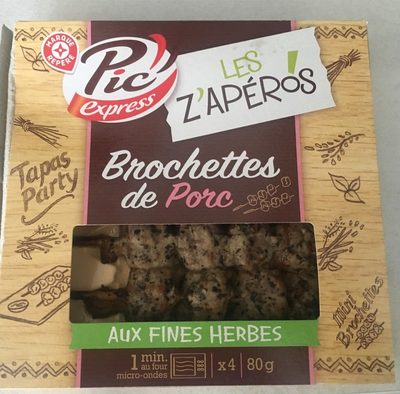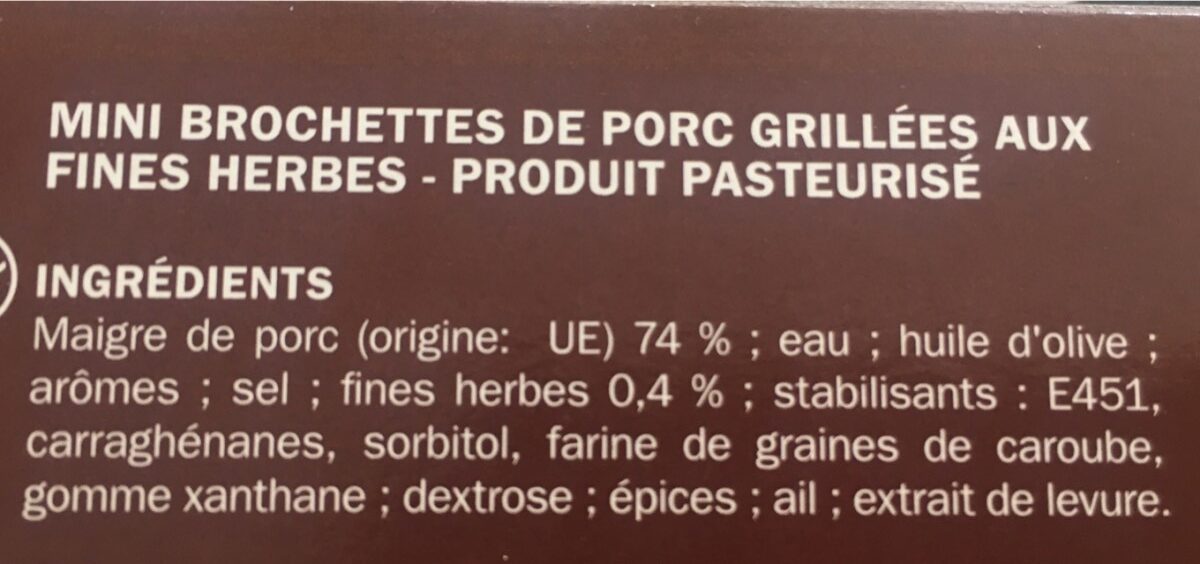Mini brochettes de porc aux fines herbes x 4 - Pic' Express - 80 g
This product page is not complete. You can help to complete it by editing it and adding more data from the photos we have, or by taking more photos using the app for Android or iPhone/iPad. Thank you!
×
Some of the data for this product has been provided directly by the manufacturer Scamark.
Barcode: 3564706501751 (EAN / EAN-13)
Quantity: 80 g
Brands: Pic' Express, Marque Repère
Categories: Meats and their products, Meals, Meat preparations, Meats, Skewers, Meat skewers, Pork and its products, Meals with meat, Pork, Pork meals, Pork skewers
Stores: Leclerc
Countries where sold: France
Matching with your preferences
Environment
Carbon footprint
Packaging
Transportation
Other information
Preparation: Au micro-ondes: Sans ouvrir le sachet plastique, chauffer pendant une minute à 700 W. Puis, retirer le sachet plastique et servir les brochettes. A la poêle: faire chauffer un peu d'huile et cuire les brochettes entre 3 et 5 minutes. Au grill: chauffer à 150 °C et cuire les brochettes entre 3 et 5 minutes.
Report a problem
Data sources
Product added on by kiliweb
Last edit of product page on by org-scamark.
Product page also edited by autorotate-bot, openfoodfacts-contributors, roboto-app, scamark, sebleouf, teolemon, yuka.UlA0S09ZZGVvOEFBZ2NFZzVSYnE4ZXBwbVpQd2JIcVdETVloSVE9PQ.









